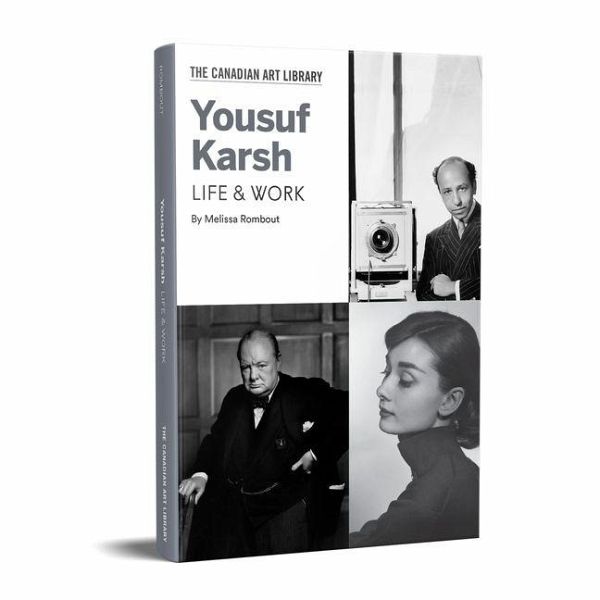
Yousuf Karsh
Life & Work
Versandkostenfrei!
Versandfertig in über 4 Wochen
29,99 €
inkl. MwSt.

PAYBACK Punkte
15 °P sammeln!
Yousuf Karsh (1908?2002) is widely recognized as one of the leading portrait photographers of the twentieth century. Arriving in Canada alone in 1924 as a fifteen-year-old displaced refugee of the Armenian genocide, Karsh mastered the art of portraiture through apprenticeships in stylish studios of the Pictorialist age. With his camera, he sought to capture the essential nature of his subjects in what he called the ?elusive moment of truth.? Over the course of six decades, ?Karsh of Ottawa? created a unique visual chronicle of celebrated legends and so-called ordinary sitters, becoming a celeb...
Yousuf Karsh (1908?2002) is widely recognized as one of the leading portrait photographers of the twentieth century. Arriving in Canada alone in 1924 as a fifteen-year-old displaced refugee of the Armenian genocide, Karsh mastered the art of portraiture through apprenticeships in stylish studios of the Pictorialist age. With his camera, he sought to capture the essential nature of his subjects in what he called the ?elusive moment of truth.? Over the course of six decades, ?Karsh of Ottawa? created a unique visual chronicle of celebrated legends and so-called ordinary sitters, becoming a celebrity in his own right. In Yousuf Karsh: Life & Work, author Melissa Rombout introduces Karsh to new audiences by exploring his artistic choices in the wider context of twentieth-century portraiture practice. His vast body of work?encompassing more than 15,000 portrait sittings?spans decades of changing photographic technologies. Karsh made iconic portraits of leading political, scientific, industry, and cultural figures such as Winston Churchill, Queen Elizabeth II, Martin Luther King, Jean Paul Riopelle, Andy Warhol, Margaret Atwood, Robert Oppenheimer, and Nelson Mandela. This book offers a compelling examination of Karsh as an image-maker in every sense of the term. Taking an in-depth look at his acclaimed oeuvre, Rombout considers how Karsh presented ideals of greatness, beauty, and order as timeless individual qualities in the face of collective alienation, fragmentation, and relentless change.












